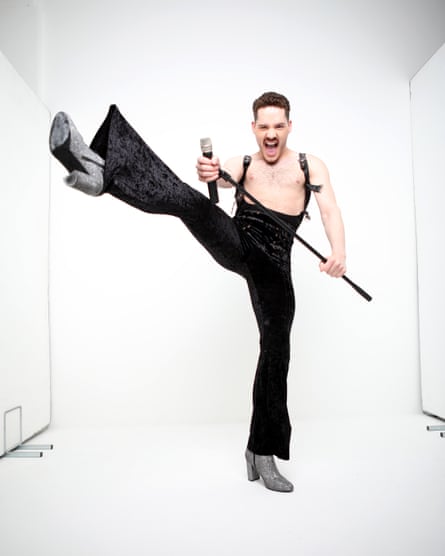
Big music festivals are not the only places to enjoy a headline act such as Adele, Taylor Swift or Dolly Parton.
Convincing impersonators of the biggest names in music, and of other late, great stars, such as George Michael and Freddie Mercury, also regularly entertain the crowds at civic centres, summer fairs and even the odd golden wedding.
But the sterling work of these professional tribute acts is now under threat. An unexpected blow to their business model was delivered in March when Facebook, now known as Meta, effectively banned their content from its site. It introduced new rules that excluded the Facebook and Instagram accounts of anyone who could be described as “impersonating someone else”.
The change of policy has put a serious obstacle in the path of these popular performers, they claim.
“I am devastated,” said Kelly O’Brien, who has been singing as a Parton tribute act for 16 years.
“I put my heart and soul into what I did. Then, just like that, everything has gone: all your links to your fans and to the people you liaise with for gigs, along with every video you have ever done.”
This week a group of unhappy tribute act performers will gather outside Meta’s new building at King’s Cross to demonstrate against the company’s policy and call for change.
The protesters, who will include O’Brien and fellow performers who impersonate Swift, Mercury and Britney Spears, plan to carry placards bearing the slogan “Stop Banning Us”, and to chant and sing as they ask people to sign a petition calling for Meta to look again at its policy.
“Every day they are taking our pages down, although we explicitly say we are tribute acts,” O’Brien said. “Many of us have tried paying for verification too, but it doesn’t seem to give us any added layers of protection.
“I have permission from Dolly to do my act. The Parton family have also been in touch and I know she is all for it, but that doesn’t seem to matter either.” In response to the complaints, this weekend a spokesperson for Meta said the company would attempt to restore the accounts of any names they were given.
Meta told the Observer it does allow fan pages and accounts on its sites but “in all cases, we require the user to make it clear in their bio/subject elements that they are not the authentic individual/entity”.
It said that its “clear policies against impersonation and harassment” mean they also encourage people to report rule-breaking.
However, the campaign group claims that, in the past, temporary reinstatements have not lasted long, and that their attempts to meet representatives of Meta to state their case have been in vain.

The social media giant’s policy states: “We don’t allow people on Facebook to pretend to be someone well-known or speak for them without permission.”
after newsletter promotion
Breaking these standards would mean any tribute act or professional affectionate or satirical impersonator would be at risk of being excluded from the platforms, which are vital for building contacts and promoting their talents.
“Facebook is the place where people go to buy tickets. Where else online are they going to casually look? Tribute acts are a multimillion-pound industry.
“A Céline Dion act I know paid for a big advertising campaign on the site but has still been banned,” said O’Brien, 49, who has performed her act, The Dolly Show, around the world, as well as at Glastonbury.
“I am five foot small, like Dolly, and I started singing country when I was a child.
“She is a wonderfully inspiring person, a singer, a songwriter, an actress, a businesswoman and a humanitarian. She appeals across the board. What is not to love?” added O’Brien.
Her account, which has more than 6,000 followers, was closed down last year with just 48 hours’ notice due to an earlier Meta ruling and then briefly reinstated this spring.
On 18 March, access to the account for the 4,500 following she had rebuilt was blocked again.
O’Brien, who is from Australia but now lives in Hertfordshire, has appeared on the BBC One show Even Better Than the Real Thing and is currently touring in Britain.
Ahead of the planned protest she offered a final message to Meta’s founder, Mark Zuckerberg, who is believed to be planning a cage fight with Elon Musk: “We know you like cages, but we don’t. We want to fly!”


